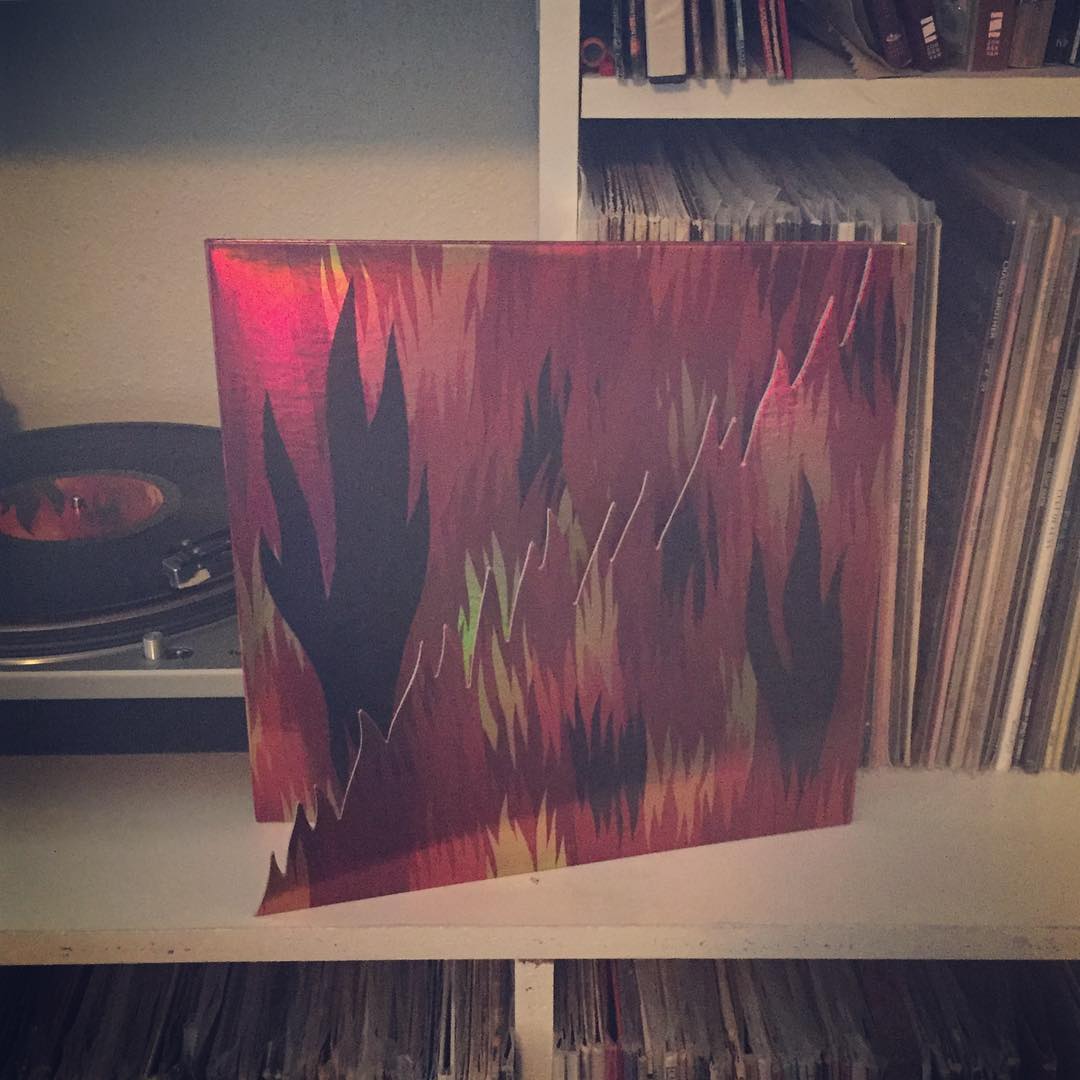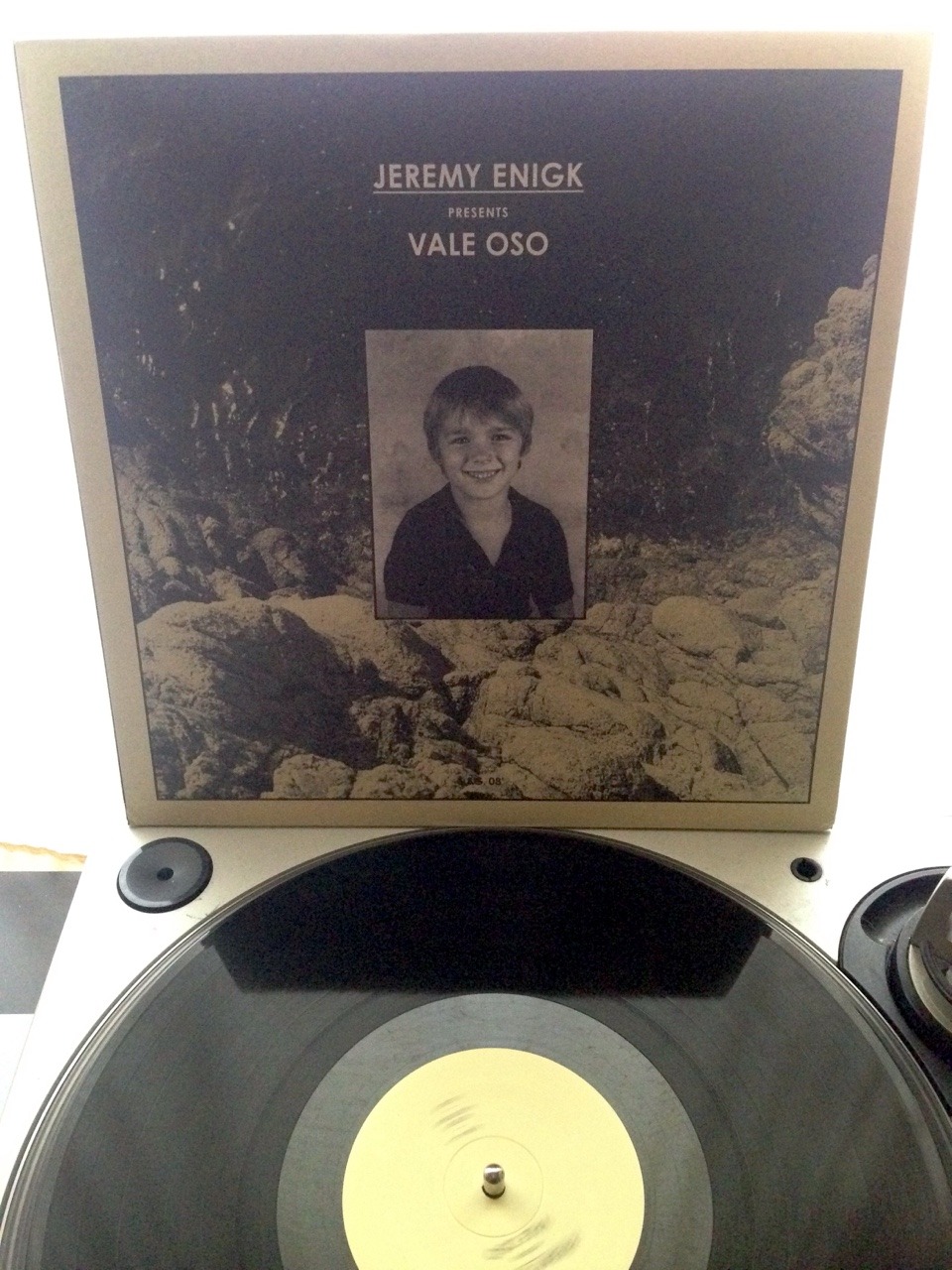
“If there’s no such thing as time, you’re already there,” asserts the professorial voice that opens the record.
But given that it took me seven years to add this record to my collection, I have to take issue with his claims.

“If there’s no such thing as time, you’re already there,” asserts the professorial voice that opens the record.
But given that it took me seven years to add this record to my collection, I have to take issue with his claims.
 I grew up in a blended family—between my siblings and step-siblings, there were five teens and tweens that our parents had to wrangle together.
I grew up in a blended family—between my siblings and step-siblings, there were five teens and tweens that our parents had to wrangle together.
Finding something that seven people all agree on is a trial of Herculean proportions. To that end, Whatever and Ever Amen was a godsend in my family.
But Fleet Foxes were not satisfied to float on the rising deluge of their copycats. Instead, their sophomore outing found them turning inward. Anyone looking for anything as bouncing and immediate as “White Winter Hymnal” was sorely disappointed. Rather, the tracklist was filled with ominous baroque opuses. Songs took unexpected twists and turns, ending up in very different places than they started (see: the eleven minute “The Shrine/An Argument,” “Helplessness Blues”). If Fleet Foxes was the sound of vagrants playing guitar in the woods, Helplessness Blues was the chants of a group of prophets standing on the ocean’s edge forecasting the end of days.
And yet, Helplessness Blues seems almost poppy compared to Crack-Up.
In the six years since Helplessness Blues, the promised apocalypse came. And Fleet Foxes is right in the middle of it.
This album is less Helplessness Blues’ chameleon than a cuttlefish. Helplessness Blues’ colors shifted, but slowly. Crack-Up is a constant flash of transforming hues.
Keys change between lines of a verse. Choruses appear once and are contorted on their coda. Tracks fade between eachother without stopping to breathe. Which sometimes makes it confusing, as many of the tracks play like many songs played as a medley.
This is far and away the most ambitious thing Fleet Foxes or any of their contemporaries have done. This is the headier moments of their previous albums stretched into a full-length.
When their debut landed on us, I often described Fleet Foxes as “folksy Beach Boys.” If their self-titled was Pet Sounds, this is their Smile. An album that features all the same colors, but arranged in a massive baroque pop suite that is as inviting as it is impenetrable.
*(yes–Fleet Foxes’ first EP was released eleven years ago)


I should be forthcoming: Sunny Day Real Estate is one of my favorite bands ever. I mean ever. And it’s been that way eleven years. The first time I heard Radiohead (who now bears the same distinction) I thought “his voice sounds a bit like Jeremy.” When mewithoutYou (another all time favorite) released a song with Jeremy on guest vocals, I wept real tears. I spent more than is reasonable for vinyl copies of How it Feels to be Something On and The Rising Tide (which my dog ate the day I got it). I have been pushing hard for vinyl reissues of World Waits and The Fire Theft.
So why did it take me five years to listen to his third proper solo record? Well, I really don’t know.
 Chris Simpson, mastermind of The Gloria Record, started out as the lead singer of everyone’s favorite Sunny Day Real Estate tribute band (fight me). When Mineral broke up, he grabbed a couple guys and started making the same sort of slow, cascading guitar music. Continue reading
Chris Simpson, mastermind of The Gloria Record, started out as the lead singer of everyone’s favorite Sunny Day Real Estate tribute band (fight me). When Mineral broke up, he grabbed a couple guys and started making the same sort of slow, cascading guitar music. Continue reading

Janelle Monae is a chameleon of the finest form. She has been leveled comparisons to James Brown, Prince, David Bowie, and Jack White, and trekking through the monolithic The Archandroid, each one of them stands up to scrutiny.
Monae sets her feet firmly in funk and soul and gropes wildly in all directions grabbing a bit of hip hop, a bit of garage rock, a bit of disco, a bit of MPB, all dashed with a healthy dose of afro-futurism.
And the most telling of Monae’s talents is that such a disparate sounding record not only works, but excels, even with such a goofy premise behind it. Because let’s be honest: a genre-spanning concept album about a robot who is also the Messiah who falls in love with her maker in a city where dancing and love are outlawed should be ridiculous to the point of being unlistenable. But it’s actually one of the best records to come out of the last ten years.
2011’s Native Speaker was one of those albums that snuck up on me without much fuss, but it crashed onto my year end list like a whirlwind. It was a bipolar affair, slipping from vulgar to tender within the same verse as the tracks jumped from manic exuberance to serene atmospherics as the record progressed. And with the announcement that their keyboardist had stepped down, it seemed like Flourish // Perish would spend most of its time in the chirpy, bouncing art pop portion of Braids’ repertoire.
But that’s not the case at all. Rather, Braids merged their two extremes into one beat-ridden, ethereal whole.
For many people, the words “Iron & Wine” and “full band” do not compute. After all, doesn’t Iron & Wine work because of the stripped minimalism of Sam Beam’s hushed acoustic folk? Less is more, right?
After two full lengths and an EP comprised largely of solo acoustic guitar and voice with the occasional harmony overdub, Sam Beam must have finally realized that he can get a little louder in the studio than he can in his attic.